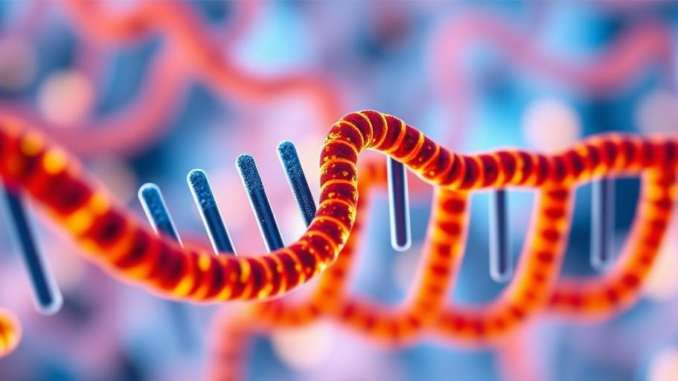
Summary
This article explores the groundbreaking field of pharmacogenomics, a science that tailors drug prescriptions to individual genetic makeups. It discusses the benefits of this personalized approach, including increased drug efficacy and reduced adverse reactions, while also addressing the challenges and future directions of this rapidly evolving field. Pharmacogenomics holds the key to a future where medicine is truly tailored to the individual, maximizing treatment success and minimizing risks.
Healthcare data growth can be overwhelming scale effortlessly with TrueNAS by Esdebe.
Main Story
The world of medicine is changing, and it’s changing fast. We’re moving away from the old ‘one-size-fits-all’ approach to treatment, and heading toward a future where your prescriptions are tailored specifically to you. This shift is being driven by pharmacogenomics, a pretty cool field that looks at how your genes affect how you respond to medications.
Basically, by analyzing your unique genetic profile, pharmacogenomics can help doctors pick the best drugs and dosages for you. This isn’t just about making things more efficient; it’s about maximizing the benefits you get from treatment while minimizing the risk of nasty side effects. Sounds good, right? It’s about moving towards precision medicine, where treatments are truly personalized. What will this mean? Improved patient outcomes and a more efficient healthcare system. Can’t argue with that!
Think about it: traditionally, prescribing medication has been a bit of a guessing game. Doctors often have to try different drugs, tweak dosages, and see what works best for each patient. This can take a long time, cost a lot of money, and sometimes it even leads to adverse effects. Pharmacogenomics? It aims to cut out this trial and error, providing healthcare pros with genetic info that helps them choose the right drugs and dosages from the get-go.
So, how does it all work? The science behind pharmacogenomics boils down to understanding how variations in our genes affect the way our bodies process drugs. It’s fascinating, really! These variations can influence how quickly a drug is metabolized, how well it’s absorbed, and how it interacts with specific targets in the body.
For instance, some people have genetic variations that cause them to metabolize certain drugs really quickly, which basically makes the drug ineffective. Others might have variations that lead to slow metabolism, increasing the risk of drug accumulation and, well, toxicity. It’s all so variable, you know?
Pharmacogenomics allows us to identify these variations and use that knowledge to predict how someone will respond to a particular medication. It’s like having a cheat sheet for drug therapy! This lets healthcare providers choose the right drug and the right dose for each person, maximizing the chance of treatment success and minimizing the likelihood of adverse reactions. I saw this in practice a few years back when a relative was put on antidepressants; it took ages to find one that worked, and the side effects were rough. Imagine if pharmacogenomics could have sped that process up!
The benefits of pharmacogenomics are pretty clear, aren’t they? By personalizing drug therapy, we can see:
- Improved drug efficacy: Choosing meds based on your genetic profile increases the chance they’ll work.
- Reduced adverse drug reactions: Genetic insights can help identify those at higher risk of side effects, allowing for preventative measures or alternative drug choices.
- Faster treatment response: Selecting the most effective drug early on can speed up the time it takes for patients to feel better.
- Cost savings: Cutting down on trial-and-error prescribing can save money for both patients and the healthcare system. It’s a win-win, really.
That said, while pharmacogenomics has huge potential, there are still hurdles to overcome. One of the biggest is the complexity of gene-drug interactions. The human genome is incredibly complex and understanding exactly how multiple genes and environmental factors influence drug response takes tons of research and some seriously sophisticated data analysis.
Another issue is the cost. Genetic sequencing has become much cheaper in recent years, but pharmacogenomic testing can still be pricey and might not be covered by all insurance plans. This can limit access, especially for those in underserved communities.
Even so, pharmacogenomics is moving forward rapidly, and it’s being integrated into clinical practice more and more. Ongoing research is uncovering new gene-drug associations, which is expanding the range of conditions for which testing can be used. And as our understanding of the human genome grows and the cost of testing continues to fall, pharmacogenomics is set to become a cornerstone of personalized medicine.
Ultimately, the future of healthcare lies in tailoring treatments to the individual. And pharmacogenomics? It’s paving the way. By using the power of genetic information, this field offers a path towards more effective, safer, and personalized medicine for everyone. And as we continue to unlock the secrets hidden within our DNA, who knows what other incredible breakthroughs await?


So, instead of just guessing which med works, we’ll have a personalized cheat sheet? Sounds fantastic for avoiding those “oops, this one makes you sprout tentacles” moments. Seriously though, will this data *actually* be secure, or are we just handing over our genetic code to the highest bidder?
That’s a great question! Data security is definitely a key concern as pharmacogenomics becomes more widespread. There are strict regulations like HIPAA in place to protect patient information, but ongoing vigilance and advancements in data protection technologies are crucial to maintain trust and ensure privacy. It’s a conversation we need to keep having!
Editor: MedTechNews.Uk
Thank you to our Sponsor Esdebe
Pharmacogenomics sounds like a real game-changer! Imagine a world where instead of “take two and hope for the best,” we get a personalized prescription based on our unique genetic blueprint. Does this mean that one day we’ll have gene-tailored cocktails? Now that’s a happy hour I can get behind!